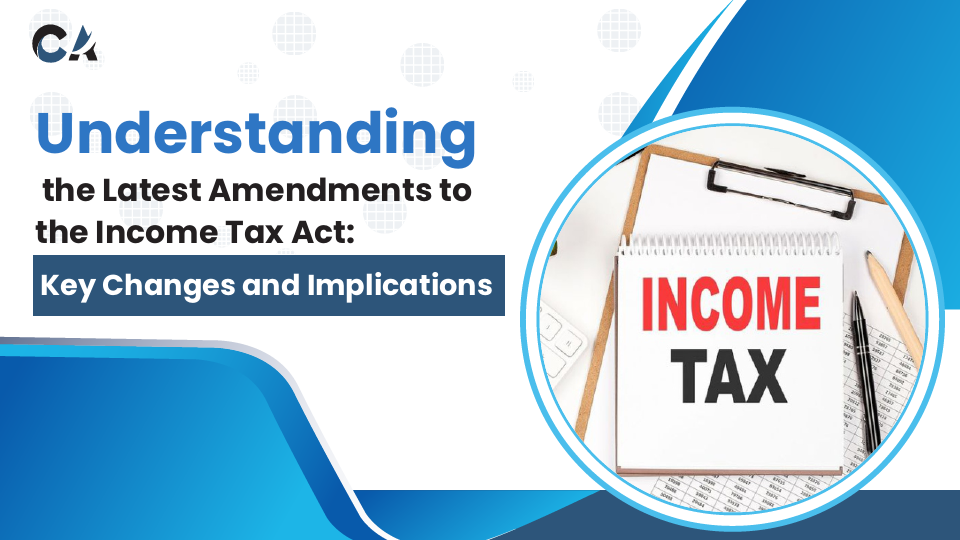Understanding the Latest Amendments to the Income Tax Act: Key Changes and Implications
Staying abreast of amendments to the Income Tax Act is crucial for individuals and businesses in India. These amendments directly impact tax liabilities, deductions, exemptions, and compliance requirements. Let’s delve into the recent changes and their implications:
Key Changes in the Income Tax Act
- Tax Slab Revision: The government has introduced new tax slabs with revised rates, providing taxpayers with options to choose between the old and new regimes based on their income levels and financial goals.
- Deductions and Exemptions: Certain deductions under Section 80C, such as investments in PPF, EPF, and life insurance premiums, have been revised. Additionally, deductions for medical insurance premiums (under Section 80D) and interest on home loans (under Section 24) have been modified.
- Dividend Distribution Tax (DDT): The DDT regime has been abolished, making dividends taxable in the hands of shareholders rather than the company.
- Penalty Provisions: Stricter penalties have been introduced for non-filing or late filing of income tax returns, TDS defaults, and under-reporting of income.
- Corporate Tax Reforms: The corporate tax rate has been reduced for domestic companies and new manufacturing companies, aimed at boosting investments and economic growth.
Implications for Taxpayers
These amendments necessitate taxpayers to:
- Review their tax planning strategies to optimize benefits under the new tax slabs or regimes.
- Ensure accurate compliance with revised deduction limits and reporting requirements.
- Stay informed about penalty implications to avoid financial repercussions.
- Seek professional advice to navigate complex tax provisions and maximize savings.
Are you prepared to navigate the latest amendments to the Income Tax Act effectively? Contact us at +91 911 891 1172 for expert guidance tailored to your specific tax planning needs. Stay informed, compliant, and proactive in managing your tax affairs.


